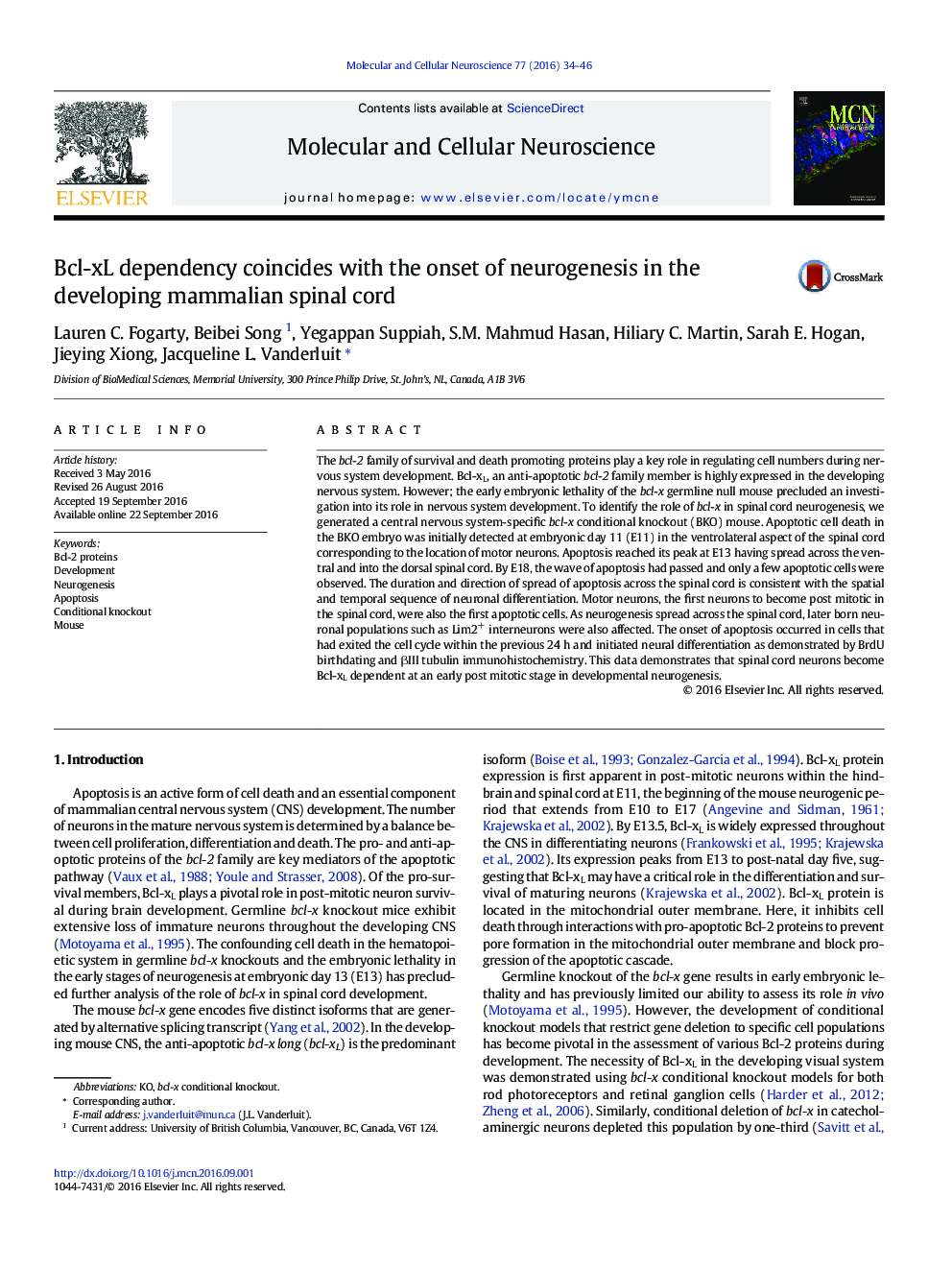| Article ID | Journal | Published Year | Pages | File Type |
|---|---|---|---|---|
| 5534454 | Molecular and Cellular Neuroscience | 2016 | 13 Pages |
â¢Examined the role of bcl-x in a CNS-specific bcl-x conditional knockout mouse.â¢Bcl-xL is required for survival of post mitotic neurons throughout the developing spinal cord.â¢The onset of Bcl-xL dependency follows the spatial and temporal pattern of neurogenesis as cells exit the cell cycle.â¢Neurons become Bcl-xL dependent within 24 h of exiting the cell cycle.
The bcl-2 family of survival and death promoting proteins play a key role in regulating cell numbers during nervous system development. Bcl-xL, an anti-apoptotic bcl-2 family member is highly expressed in the developing nervous system. However; the early embryonic lethality of the bcl-x germline null mouse precluded an investigation into its role in nervous system development. To identify the role of bcl-x in spinal cord neurogenesis, we generated a central nervous system-specific bcl-x conditional knockout (BKO) mouse. Apoptotic cell death in the BKO embryo was initially detected at embryonic day 11 (E11) in the ventrolateral aspect of the spinal cord corresponding to the location of motor neurons. Apoptosis reached its peak at E13 having spread across the ventral and into the dorsal spinal cord. By E18, the wave of apoptosis had passed and only a few apoptotic cells were observed. The duration and direction of spread of apoptosis across the spinal cord is consistent with the spatial and temporal sequence of neuronal differentiation. Motor neurons, the first neurons to become post mitotic in the spinal cord, were also the first apoptotic cells. As neurogenesis spread across the spinal cord, later born neuronal populations such as Lim2+ interneurons were also affected. The onset of apoptosis occurred in cells that had exited the cell cycle within the previous 24 h and initiated neural differentiation as demonstrated by BrdU birthdating and βIII tubulin immunohistochemistry. This data demonstrates that spinal cord neurons become Bcl-xL dependent at an early post mitotic stage in developmental neurogenesis.
